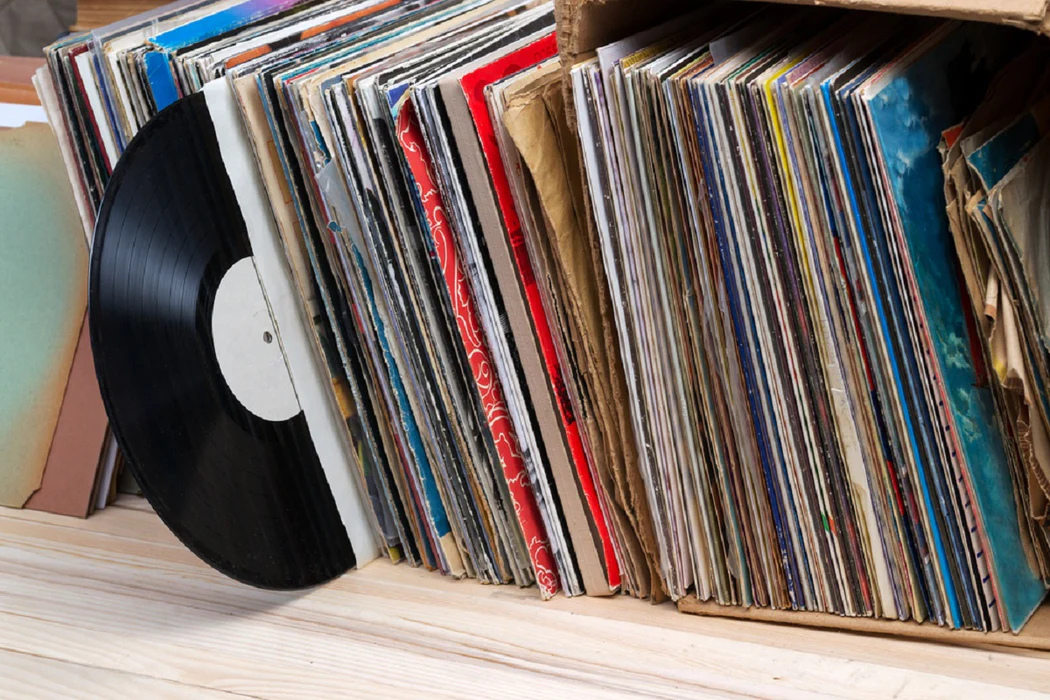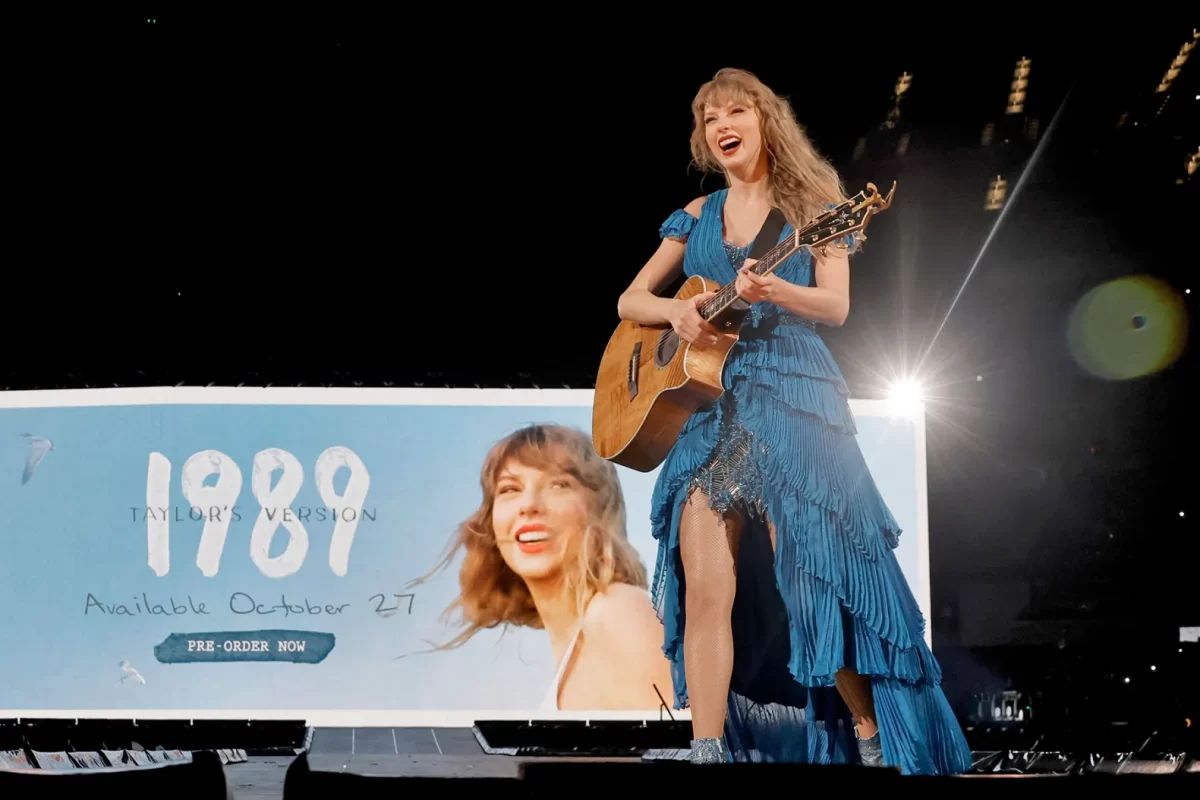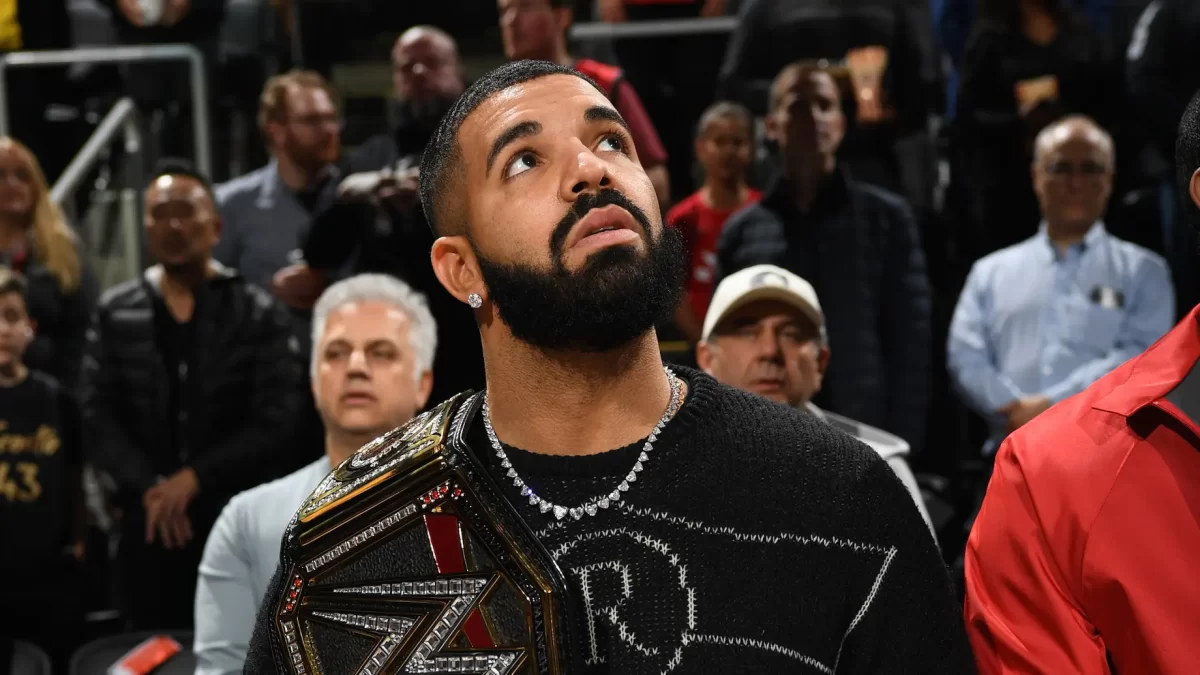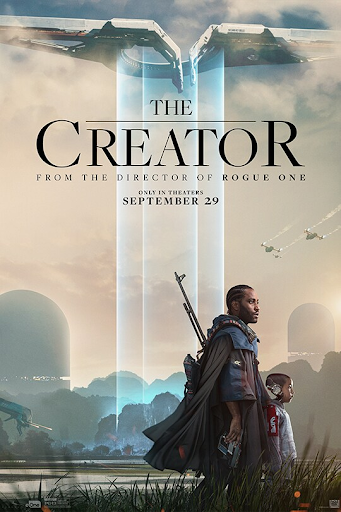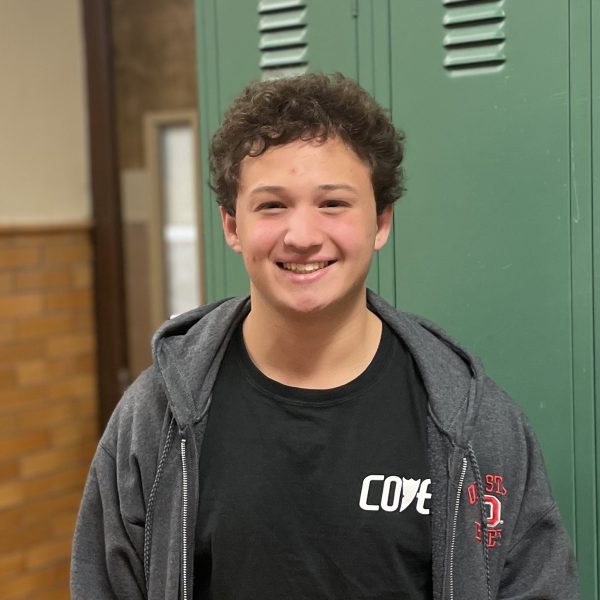2023 was certainly an interesting year for music. New artists and veterans alike released some of their biggest projects in years. What ended up being popular continued to evolve and change. While there were few albums released by major artists (compared to other years), quality over quantity defined the music industry in 2023. We had innovations in sound, features we thought we would never get, and hits that will continue to be played for years to come.
Near the end of November, The Foreword created a survey available to the Allderdice student body that allowed students to submit their top three albums of the year. This survey aimed to discover what albums our school thought of as the best of the best from this year, above and beyond everything else released. Throughout December, our survey garnered a multitude of diverse responses and eventually, we tallied the number of votes for every album chosen. Without further ado, here are the albums that beat out the competition, and our thoughts and opinions on each of them.
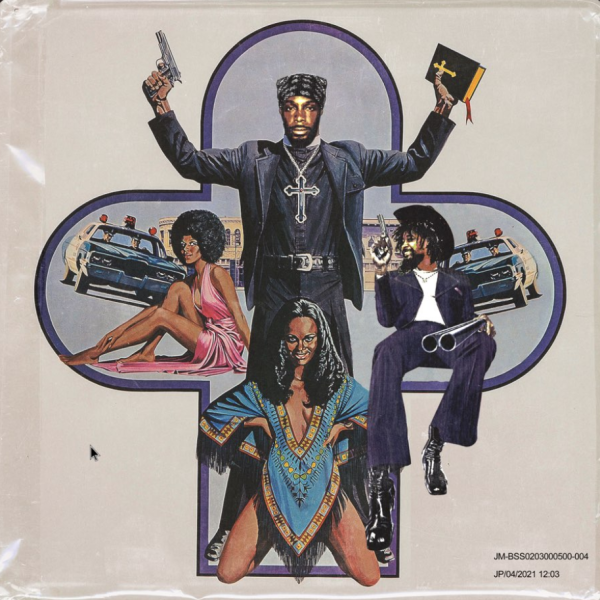
JPEGMAFIA is known around the alternative hip-hop scene as one of the most unique and experimental producers out there. Pair him with an influential veteran rapper like Danny Brown and what you get is a gritty, industrial-sounding, but upbeat rap record that experiments with sounds most people couldn’t even imagine before listening. JPEG has a unique way of combining soulful samples, unusual drums, and deep loud bases to create beats that are both abrasive and fun. Both he and Danny Brown can rap, and they do it well. Their rapping ability is shown on full display throughout the record, though sometimes overshadowed by the insanity that is the production. From top to bottom, the beats you’re getting in this album are all complex and layered in their own, unique way. Arguably the best track on the record is “Kingdom Hearts Key” which samples beautiful Japanese vocals to create an angelic and exciting beat carried by one of JPEG’s best-ever verses. It also includes young, upcoming rapper Redveil, whose feature is perfect for this album. If you’re a casual hip-hop fan who decides to turn on Scaring the Hoes, be ready for one of the craziest auditory experiences out there.
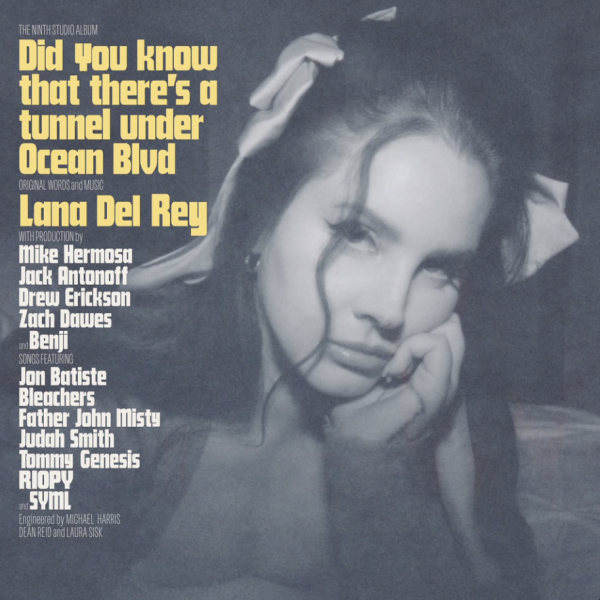
Not many modern artists can say they’ve held onto their initial mainstream success nine albums into their career and still attain widespread positive reception. Yet for Lana Del Rey, this doesn’t seem to apply. On the most recent addition to her catalog, Did you know that there’s a tunnel under Ocean Blvd, Lana offers no exception to her eccentric and often head-scratching musical reputation – although this time, she treads the fine line between artistic freedom and structure all the more closely.
Sitting at an uncomfortable 78 minutes long, Ocean Blvd sees Lana at her most vulnerable and existential, regularly pondering philosophical matters like family, life, death, and mental health. Many of the songs even read like diary entries, offering a glimpse into her honest life. For example, Lana vocalizes an unfiltered stream of consciousness on “Fingertips”, “Will the baby be alright? Will I have one of mine? Can I handle it even if I do? It’s said that my mind is not fit, or so they said, to carry a child. I guess I’ll be fine.”
These vast lyrical topics, however, do not sacrifice the quality of the music, for Ocean Blvd presents as Lana’s most musically ambitious record as well. From gentle piano ballads that swell into atmospheric orchestral compositions to dark electronic trap passages, Lana and her producers, namely Jack Antonoff, work together to create an experience that’s just as engaging, if not more so than 2019’s critically acclaimed Norman Fucking Rockwell!. For example, the second single promoting the record “A&W” showcases Lana’s most daring, and possibly even best, performance on a song yet. Despite this, some moments of the record do struggle to keep the listener’s attention. The middle of the record drifts too far into lyrical territory that it’s left to rely on washed-out and minimalistic production, and the last few tracks stand out awkwardly compared to the rest of the record, with some of the lyrical topics and production choices falling short in quality. Regardless, these moments do not hinder the greater enjoyment of the album and overall, the songs work together to solidify Ocean Blvd as Lana’s magnum opus.
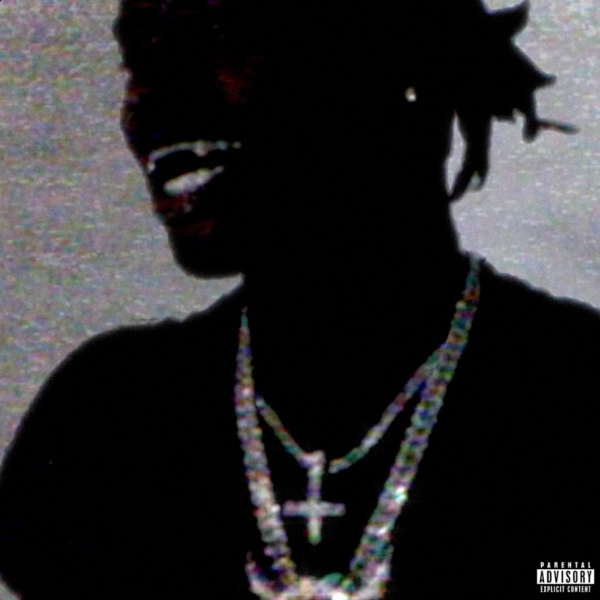
Outside of the cult-like fanbase of the Opium Label that most Playboi Carti mimics are signed to, Ken Carson’s music has previously not had much to offer to most rap fans, or music enjoyers in general. And after releasing a debut album so vapid and lifeless that it’s almost painful to listen to, it’s not outlandish to say that expectations for Ken’s next project, A Great Chaos, were on the floor. But, following the date of its release, the album received a surge of unexpected positive scores.
This is mainly attributed to the fact that A Great Chaos improves on much of what was attempted and delivered on X, Ken’s debut. X featured a collection of songs with limp beats that were entirely indistinguishable from one another. The same, however, cannot be said for Chaos. On the new album, Ken utilizes a much broader and more colorful artillery of sounds. Many of the songs’ beats combine bright distorted synths, deep 808s and bass, and unique sound samples to create more dynamic production throughout the record. Not only this, but Chaos also creatively incorporates reverb and distortion effects to give more dimension and semblance to the rage genre. This is prevalent in songs like “i need u” and in “Fighting My Demons,” a personal favorite on the album with its white-noisy synth ascensions. Despite this immense improvement in soundscape and production, the aspect that ultimately leads to the album’s downfall is Ken’s rapping. You could fabricate the most creative and ear-wormy beats in all of music and still be blighted by uninteresting rapping and flows, and unfortunately, this is the case for A Great Chaos. The beats singlehandedly carry the listener’s focus and attention for the majority of songs on the record, as Ken struggles to connect his rapping to the backing tracks of the songs. So much so that at certain moments, it’s like Carson is simply mumbling over a cacophony of sounds and has no control over the flow of the music. This essentially results in the album having minimal stimulating and daring qualities, and when compared to the other projects on this list, A Great Chaos is rendered an album not worth coming back to.

Our first entry into the top three is Olivia Rodrigo’s GUTS, the follow-up to the singer’s inescapable debut album SOUR. While SOUR was about Rodrigo’s transformation into the music industry, GUTS serves as the 20-year-old’s evolution into adulthood — and even further, into unconventional pop stardom.
At the beginning of the album, Rodrigo prepares listeners for the musical whiplash on GUTS with “all-american bitch.” This opener weaves together two seemingly clashy song sections: a jolly, acoustic verse with a loud pop-punk chorus. This dissonance aptly lets the listener know to buckle up, as GUTS itself similarly combines stylistically varied ballads with bratty pop-rock anthems that are more extreme than ever. Olivia runs far down this path of extremity in most aspects as well, like wearing her influences on her sleeve more visibly. SOUR saw Rodrigo crediting inspiration from world-renowned pop star Taylor Swift. On GUTS, however, she uniquely dons styles similar to the likes of Hole, Beck, and even The Cure. The content of GUTS also follows the themes of its predecessor, with lyrics about breakups and the female experience. But this time, Rodrigo offers introspection and vulnerability that wasn’t seen the first time around. Funnily enough, the weakest moments on the album arrive when Rodrigo regresses to her old song-writing tendencies with songs that resemble too much of what was achieved on SOUR. If you asked listeners to differentiate between “the grudge” and “drivers license,” most would be at a loss.
Interestingly, Rodrigo’s musicality blossoms when she can break loose from the shackles of relationship melancholy and embrace the energy and vigor of her punk-rock quirks. The best songs on the album come when Olivia is simply having fun evoking screams with songs like “bad idea right?” and “get him back!.” It is ultimately these moments that help GUTS establish Olivia Rodrigo not as another unrecognizable Taylor Swift clone, but as a unique and exciting voice in modern pop music.
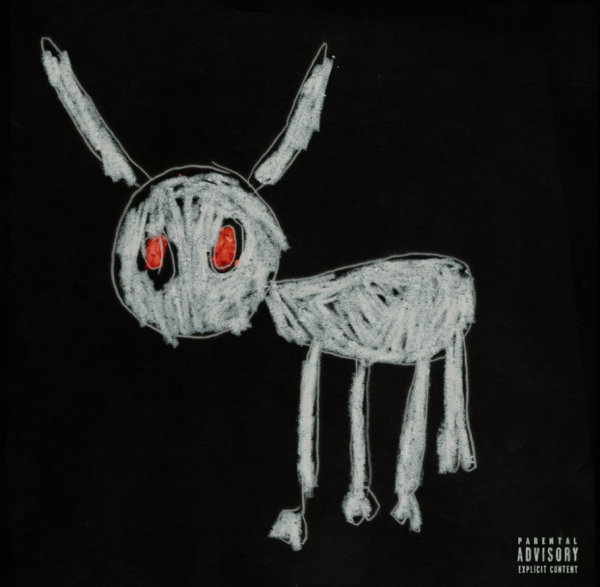
Riding swiftly into its place as second on this list is Drake’s For All The Dogs, one of the most highly-anticipated albums of the past few years. Besides the mega-star that is Taylor Swift, Drake is widely understood to be the most influential individual in the entire music industry. His main talent is his ability to make appealing music that can resonate with anyone, perfectly riding the line between hip-hop and R&B. Drake still knows how to make hits, that much is apparent with this record.
Songs such as “First Person Shooter (Feat. J. Cole),” “8am in Charlotte,” and “What Would Pluto Do” took the rap scene by storm when they first released, and it was not possible to open Instagram or TikTok without hearing one of them. Besides those standouts though, For All The Dogs fails to truly have many tracks that could be considered above average for Drake’s discography. “Bahamas Paradise” is a classic example of one of his sentimental half-singing half-rapping ballads, but does not compare to the likes of “Jungle” or “Passionfruit” from his earlier works. “7969 Santa” seems to be a laid-back track of him simply rapping over a mundane beat, but again it lacks energy and emotion like Drake listeners are accustomed to hearing. This seems to be an overarching theme throughout the album – a lack of effort and motivation in his songs. The dragged-out tracklist unquestionably does not help with this either. The album eventually starts getting too repetitive, even for Drake’s standards. Additionally, some names on the feature list are surprisingly disappointing for a Drake album of this status. The choice to include Sexyy Red and Yeat wasn’t a great one. The big names fell short of their usual expectations as well, as Chief Keef’s and 21 Savage’s verses were both surprisingly lackluster. The few bright spots are SZA, Lil Yachty, and especially J. Cole, but the album lacks in terms of the features.
Overall, For All the Dogs is a mediocre listen. Drake is certainly not at his best, and could’ve done much better with the time that was given to him. However, it succeeded in making new bangers for years to come, and whilst personally, we do not think that gives an album the right to be mentioned as an album of the year, Drake’s latest drop seemingly influenced the collective Allderdice student body and teens around the nation if it was able to secure a spot this high on the list.
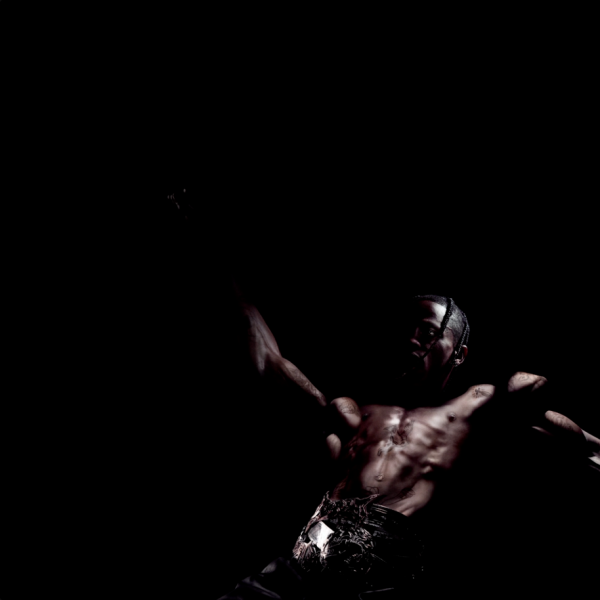
To close out the list of Allderdice’s best albums of 2023, we have one of the most long-awaited projects in recent memory. After the release of the highly acclaimed and influential melodic rap masterpiece of Astroworld in the summer of 2018, the hype around Travis Scott’s next album Utopia was immediate. Utopia was talked about as the album that would change rap for a long time, and be the defining project of the early 2020s. With Utopia, Travis not only exceeded the lofty expectations set for him but subverted them as well, creating an album that was different in almost every aspect from Astroworld.
First is the style of rap. While Astroworld is a full-on trap record with slow melodic rapping, Utopia’s vocals sound completely different, with a faster, clearer, more intense cadence. It is most apparent in the opening track “HYENA,” where Travis immediately establishes his rapping ability over a fierce, exciting beat. The other main difference from Astroworld is the production. Utopia presents Travis’s best production of his career with a major focus on deep, dark, intense beats. There’s clear inspiration from Kanye West in this area, with a couple of beats produced by Ye himself. “THANK GOD,” “MY EYES,” and “MELTDOWN” are all prime examples of these changes being put on full display. These standout tracks feature Travis’ rapping ability over powerful beats that complement the vocals perfectly.
But it is important to know that Utopia isn’t just Travis’s show, the feature list on the record is nothing short of incredible. From top to bottom, it includes the biggest names in R&B and Rap: Drake, Playboy Carti, 21 Savage, Young Thug, Westside Gunn, Kid Cudi Bad Bunny, The Weekend, Future, and tops it off with an angelic SZA feature on the penultimate track “TELEKINESIS.”
Finally, he closes out the record with “TILL FURTHER NOTICE,” produced by generational record producer Metro Boomin. The final track presents Travis reflecting on his struggles and mistakes from his past, and ends the album by raising the question “where will the listener go now after they’ve been to Utopia?” It’s a sentimental finish that provides great closure to such an introspective and atmospheric rap album.
In Utopia, Travis Scott does something most rappers can only dream of, immersing the listener into a whole new world of music. Listening to it feels like taking a peek into Travis’ mind with the dark, gritty beats representing the struggles in his life. Utopia is able to switch seamlessly between styles, switch between emotions, and wrap it all up in a polished, completed form, cementing itself as a defining rap album of this decade. More than any other record this year, it deserves the title of Album of the Year.


